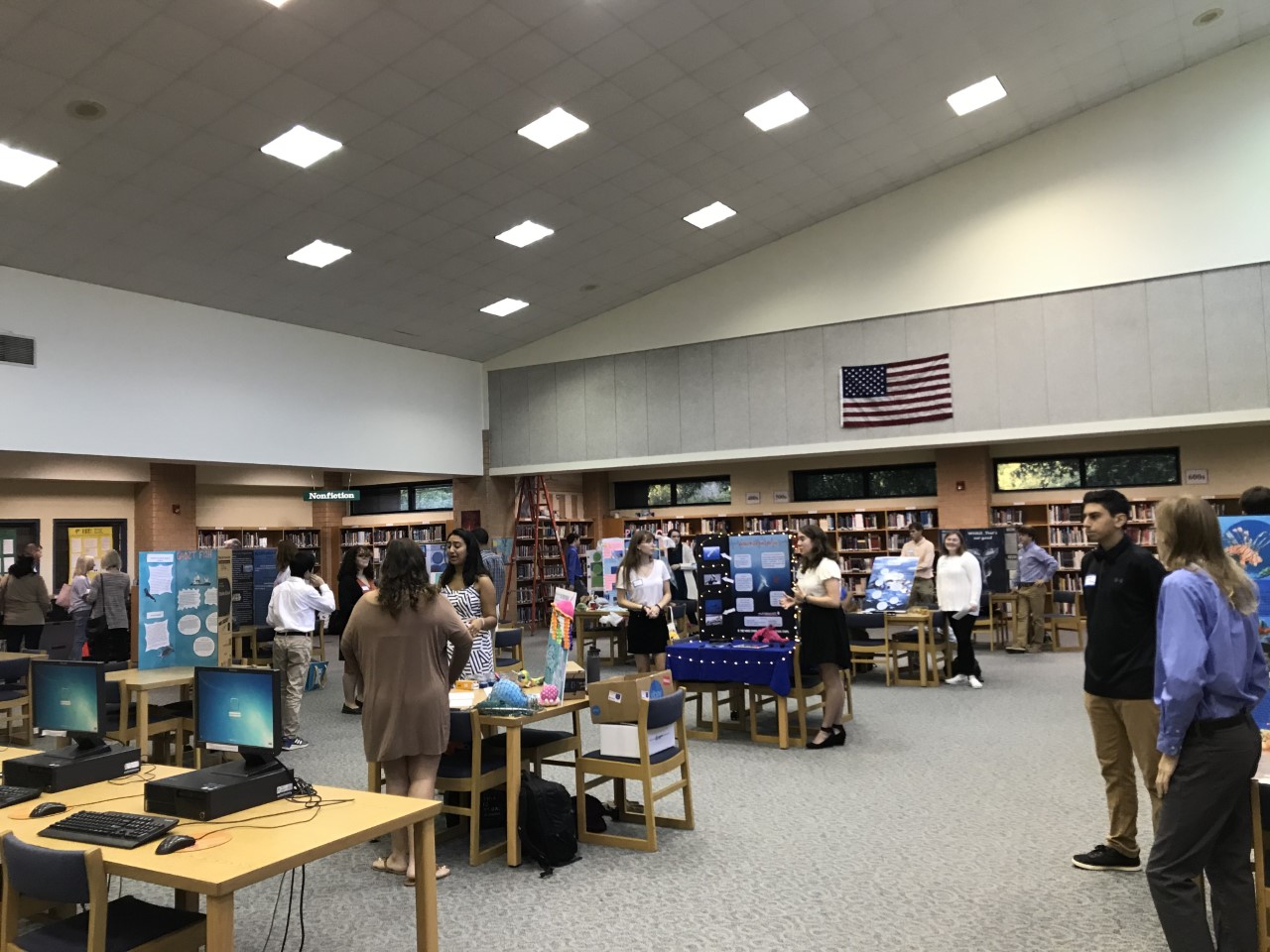Marine ecology students set up their presentations in the library. They dress formally to impress curious professors and doting parents. (Photo courtesy of Jacob Smith)
The school may not hold a science fair but that doesn’t stop Lauren Harper(@msharperscience), Leesville’s Marine Ecology teacher, from holding one of her own. Her students grades depend on how well they can present an issue facing the earth’s waters to parents and some of Harper’s professors. The issues her students choose to inform spectators span from shark fin soup to the dangers of runoff.
“A big part of science is being able to communicate issues to the general public, so I wanted to figure out a way to get them to dive deeper into human and ocean interaction and then disseminate that out the public,” said Harper when asked the purpose of this project. That’s just what they’re doing. Harper’s students repeated that sentiment while presenting their projects.
“I think learning how to present a project is important. It’s a very important life skill that many people will have to use in their adult life, so I think presenting is teaching yourself. I think it is helpful to the people around you,” said Katelyn Light, a marine ecology student doing her presentation on aquariums. Her project is focused on how places like SeaWorld actually harm ocean wildlife. “I’ve definitely learned more about aquariums from doing this project,” said Light.
I was given permission to grade a few projects at the fair. Students presentations are get grades based on how well their display looks, creative title, informative pictures, being set up on poster board, and how well the students present their data to the audience.
One such project I was able to judge was about the dangers of runoff into the ocean. “I had no idea this was even a problem before I was given this topic,” said Josh Tate. Tate and Neel Shah, Tate’s partner, walked me through their whole project. Tate and Shah taught me in depth details about fertilizer running into rivers and streams which run into oceans causing massive algae blooms, which depletes the oxygen in the water creating a dead zone where nothing can live. One big algae bloom is currently in the Gulf of Mexico and it’s caused by all the fertilizer runoff that runs into the Mississippi River which then emptied into the Gulf.
The Marine Ecology science fair is a fascinating way to teach students and parents about topics that are affecting our oceans in devastating ways. Problems such as overfishing or the bleaching of coral reefs don’t get enough attention, so educating students early is a great way of creating awareness before it’s too late.

Hi! My name is Jacob Smith and I am a staff writer for The Mycenaean. I am also a political activist and volunteer.

Leave a Reply